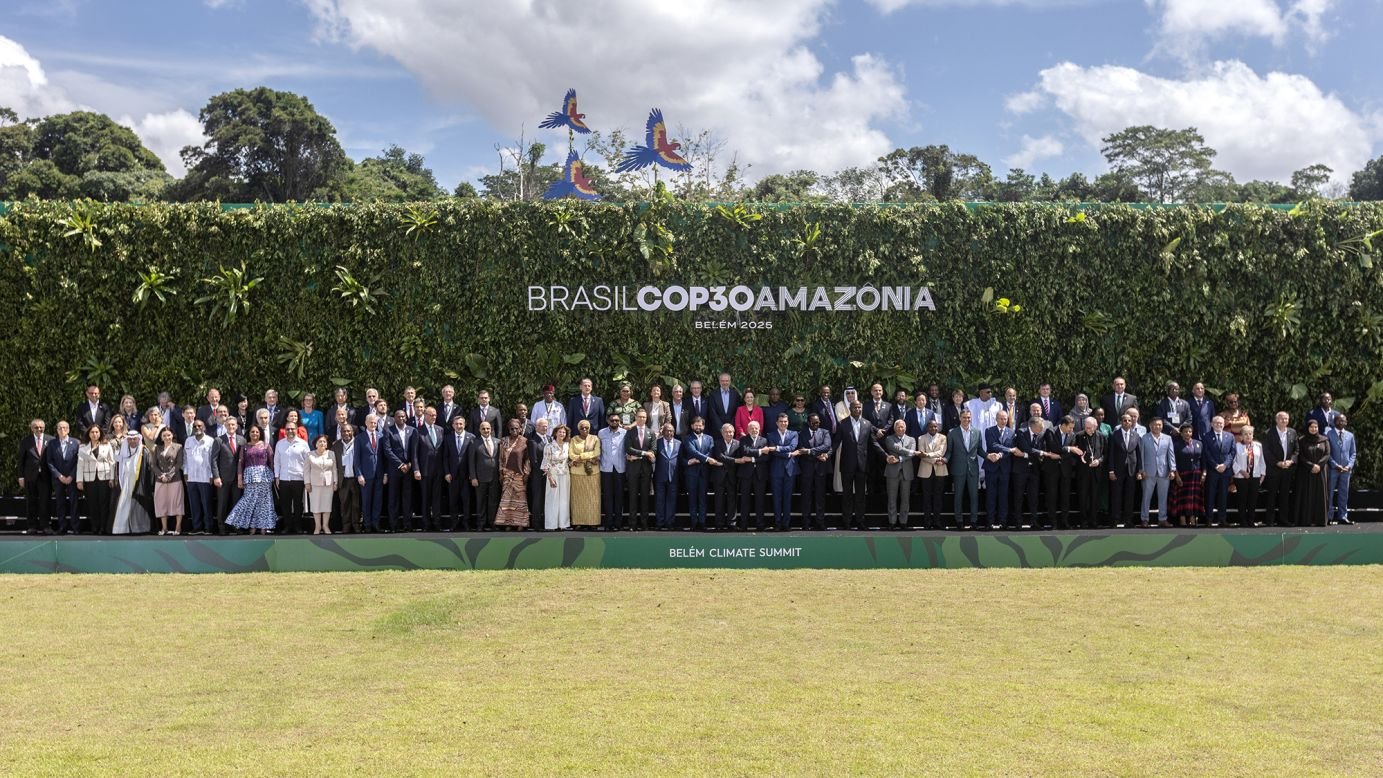Why COP30 matters for farmers, forests and fair trade
World leaders and delegates are gathering at COP30 from 10-21st of November.
The decision to hold COP30 on the banks of the Amazon river in the city of Belem is certainly symbolic.
Without rainforests, it will be impossible for the world to reach the very climate goals that will be discussed over two weeks in the city known as the Metropolis of the Brazilian Amazon.
Deforestation and preserving critical forests are high on the agenda at Belem this year, alongside transforming agriculture and food systems.
Much of the food we eat is directly linked to deforestation: 90%, to be exact, is the result of agricultural expansion with approximately 420 million hectares of forest lost since 1990.
The main driver of this is trade. Products we buy every day here in the UK such as coffee and chocolate have been found to be produced in areas experiencing deforestation.
This needs to be tackled – and the UK government is in the process of bringing in new legislation to tackle it, following suit with the EU which has just introduced the EU Deforestation Regulation.
It is crucial that this must be done fairly.
90% of the cocoa and 60% of the coffee we consume is produced by smallholder farmers – those with less than five acres of land.
Many are struggling to keep their businesses alive. Low incomes, climate change and unstable markets make life precarious.
These farmers feed billions around the world, so they must be considered when designing new legislation.
Up to 90% of the world’s cocoa is farmed by smallholders like Aswile A Mangama, pictured here on his farm in Mababu Ward, Kyela District, Mbeya Region, Tanzania. Photo: Transform Trade/ Michael Goima
The data burden
The current EU Deforestation Regulation requires every single product to be traced back to the farm plot it was grown on using polygon data- a geospatial technology involving plotting land and its environmental features into a data tracking system.
This is important for halting deforestation linked to supply chains.
But the question remains - who should be responsible for training and equipping smallholders and farmer organisations to use and manage this data?
Many farmer organisations and producers themselves have had to spend their own money setting up these complex data systems. Fairtrade International’s producer networks estimate that each producer organisation requires between 5,000 and 15,000 euros to fund this data collection.
In tough times when climate change is eating in to profit margins, such a steep cost to merely continue trading is an unacceptable burden on smallholders.
The UK’s version of these laws must take this into account. Farmers who don’t have the cash or the know-how to meet these complex requirements risk having their goods rejected at the border – or even worse, having their buyers drop them as a supplier.
European coffee orders have already slowed from Ethiopia – if this trend continues, it could have a devastating impact on the five million smallholder coffee producers worldwide.
What needs to happen at COP30 – and beyond
At COP30, the UK Government should be committing to finance international efforts which are targeted at helping indigenous people- including farmers- to preserve forests.
The standout suggestion from this year’s COP is the Tropical Forests Forever Facility – which aims to raise $125bn to invest in bonds, with returns used to reward tropical countries for conserving their tropical forest.
Beyond COP30, the UK Government must ensure that smallholders aren’t left behind in its deforestation regulation by:
Listening to farmers and giving them a seat at the decision-making table
Giving farmers training, resources and financial support
Ensuring farmers earn a living income
Protecting farmers’ data rights and building their capacity to use them
Guaranteeing transparency and fairness across supply chains – meaning fairer contracts and payment terms
While ethical business can fill the gap and offer fairer terms to their supplier – this is a problem that requires wholesale action. We need political commitments and legal incentives for the government to do the right thing.
At Transform Trade we believe the solutions are clear - by putting farmers at the centre, the UK can help build fair, deforestation-free supply chains that protect both people and the planet.
Take action today - tell your MP to make sure new deforestation laws work with farmers, not against them.


